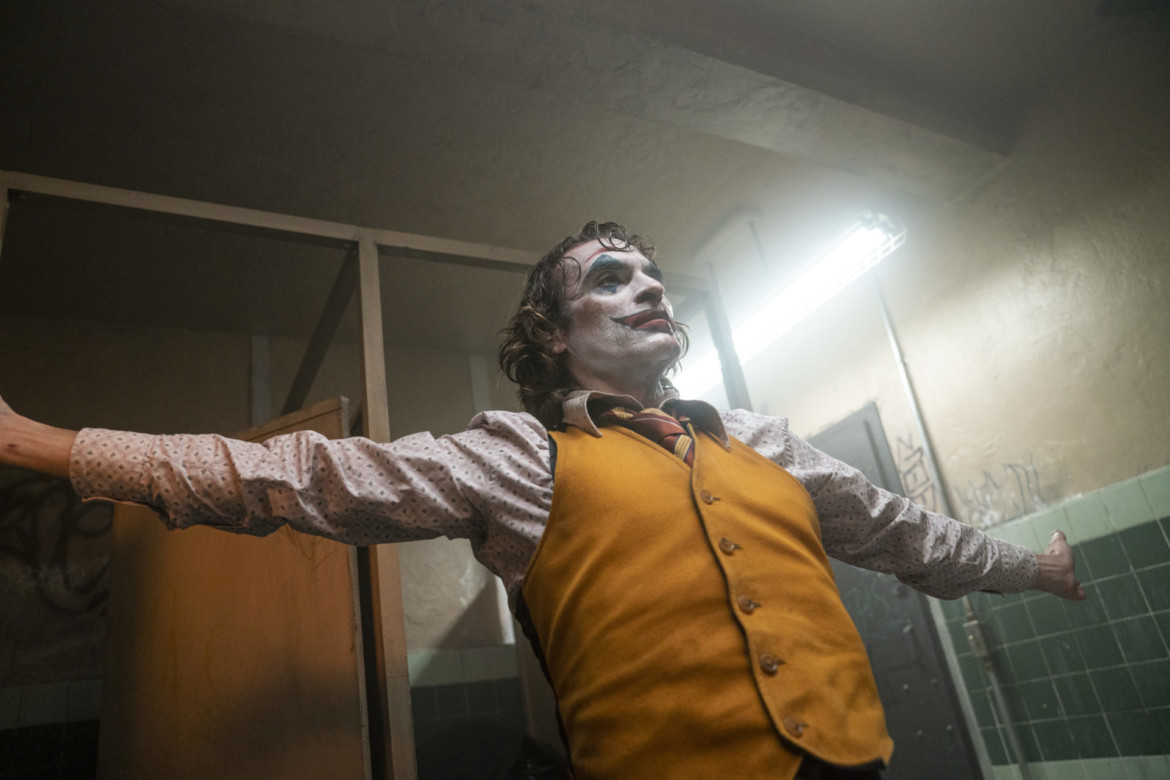Joaquin Phoenix answers the bell in Todd Phillips’ grim origin story of the famed comic book villain
By Kirsten Coachman
(Ed note: light spoilers ahead)
“When you bring me out, can you introduce me as ‘Joker’?”
Joaquin Phoenix joins the likes of Jack Nicholson, the late Heath Ledger, and Jared Leto as the latest film actor to step into the fairly unstable shoes of perhaps the most notorious comic book villain of all in Todd Phillips’ “Joker,” which opens in theaters this weekend.
“Joker” transports audiences to a dreary Gotham City, where the streets are littered and overrun with trash, building walls are covered with graffiti, and a socially-isolated man named Arthur Fleck (Phoenix) is just trying to make people laugh and smile during his daytime gig as a clown-for-hire while harboring aspirations to be a stand-up comedian. He spends his nights at home with his ailing mother Penny (Frances Conroy) in their small apartment where they watch “Live with Murray Franklin”—think Johnny Carson—every evening while Arthur daydreams of being embraced by his comedic idol (played by Robert De Niro).
But all is not well with Arthur. He’s dealing with ongoing mental health struggles due to trauma, including a laugh he can’t control, even in the most inappropriate of circumstances. He feels unseen even as he sits in front of his social worker. He’s bullied by teenagers who attack him in an alley. He’s defenseless and defeated, and in that moment as he lays on the ground, you can’t help but feel for him. Yet, as the story progresses and the many layers of this darkly complicated figure—unreliable narrator and all—are revealed, we’re left with a film that’s both uncomfortable and disturbing.
Even if you already have a favorite film version of the Joker character (mine is Ledger’s in “The Dark Knight”), Phoenix’s performance isn’t to be dismissed, as he’s superb in this role. His take on Joker stands distinctly on its own. From his gaunt frame and the dramatically fluid way he moves and contorts his body—especially during an unforgettable dance in a public restroom—to the harrowing laugh and the character’s overall demeanor separates Phoenix’s performance from those of his peers and consideration should be given for what it is versus how it compares.
Phillips certainly didn’t reinvent the wheel with “Joker,” he does, however, leave audiences with much to mull over. In the way Phillips and co-writer Scott Silver’s origin story unfolds onscreen, it’s set up for us to feel bad for Arthur’s circumstances, but the way he revels in his brutal actions and the havoc it causes across Gotham wholly conflicts with how we’ve been conditioned about this character. This potentially leads one to question whether it’s okay for us to still have sympathy for Arthur and not condone his actions. But in that case, are we making Arthur’s lack of mental stability the scapegoat? Beyond being problematic, that seems too easy and oversimplifies both the character and the movie. Yet, maybe leaving audiences with this quandary on their hands is the point.
“Joker” is now playing in theaters.
